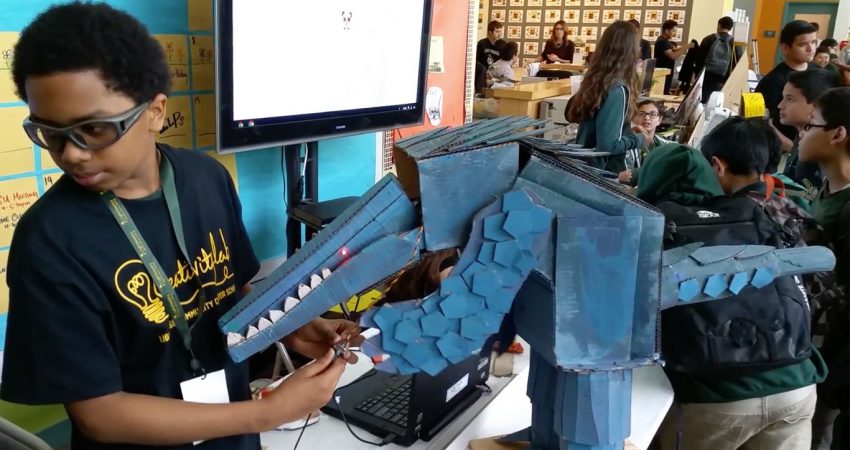
By Bronwyn Bevan - May 2011
PAPER CITATION
Barron, B. (2006). Interest and self-sustained learning as catalysts of development: A learning ecology perspective. Human Development, 49, 193–224.
WHY IT MATTERS TO YOU
This study raises questions for ISE educators to consider in the design of programs and experiences how they relate to the interests and experiences participants have access to in other settings.
What Is The Issue?
The author presents definitive arguments for the need to move beyond a “school-centric” approach to studying how people learn. Citing ecological perspectives on learning, this paper claims that for an understanding of how people develop interests, participation, and fluencies in a given domain, it is necessary to first examine how these interests are developed and nurtured across time and settings.
What Was The Study?
The researcher provides three case studies of teens who familiarized themselves with electronic technologies, each of them following different pathways, all of which spanned multiple settings and opportunities. The study delineates three different pathways that youth can take in the development of their interests. The first entails interests that commence in school and are pursued further in home and community settings. The second shows how interests starting in non-school contexts can develop further through the choice of school studies. The third involves interests developed at home and pursued in informal contexts.
The study cites an example of the second pathway in the case of Stephanie whose interest in technology developed through peer networks and participation in a game called Geocities, when she was 11 years old. By the seventh grade, she had made a decision of pursuing this interest further by taking classes at school in industrial technology and programming; she also stated that she had a clear idea about her future job being involved with computers. When she had taken all of the relevant school classes, she continued to pursue her interest in activities outside school, such as developing Web sites, joining new online communities, and learning new programming skills.
THEORETICAL UNDERPINNINGS
This paper provides a concise review of ecological perspectives on learning and development. It also posits a learning ecology framework that can help to map how youth develop fluencies, in a given domain, across “the life spaces of home, school, community, work, and neighborhoods.” A learning ecology comprises the contexts, both physical and virtual, that provide opportunities for learning.
What Were The Findings?
In each of the cases described in this paper, and in the larger set of 400 students interviewed, the researcher found that (1) within any life space there are a variety of resources that can spark and sustain interest; (2) people not only choose but also create and develop learning opportunities for themselves once they know what they are interested in, assuming that they have access to time and resources to learn; and (3) learning activities that are driven by interest cross settings and are self-sustaining. The researcher concludes that the study documents “the dynamic, highly social, and self-sustaining processes that are an important aspect of knowledge and identity development. They suggest that we should expect interest in learning to originate within and outside school and that adolescents have a significant role to play in sustaining their own development.” Through this paper the researcher helps to establish the many ways that interest is developed, how it develops across settings, and the importance of providing opportunities for children and teens to develop interests. The informal sector is sometimes niched as a place where children can gain interest, while school is the place where they can develop their expertise. This paper illustrates that the nature of interest and expertise development is much more complicated and that the ISE sector can spark, sustain, and strengthen interest and expertise.




